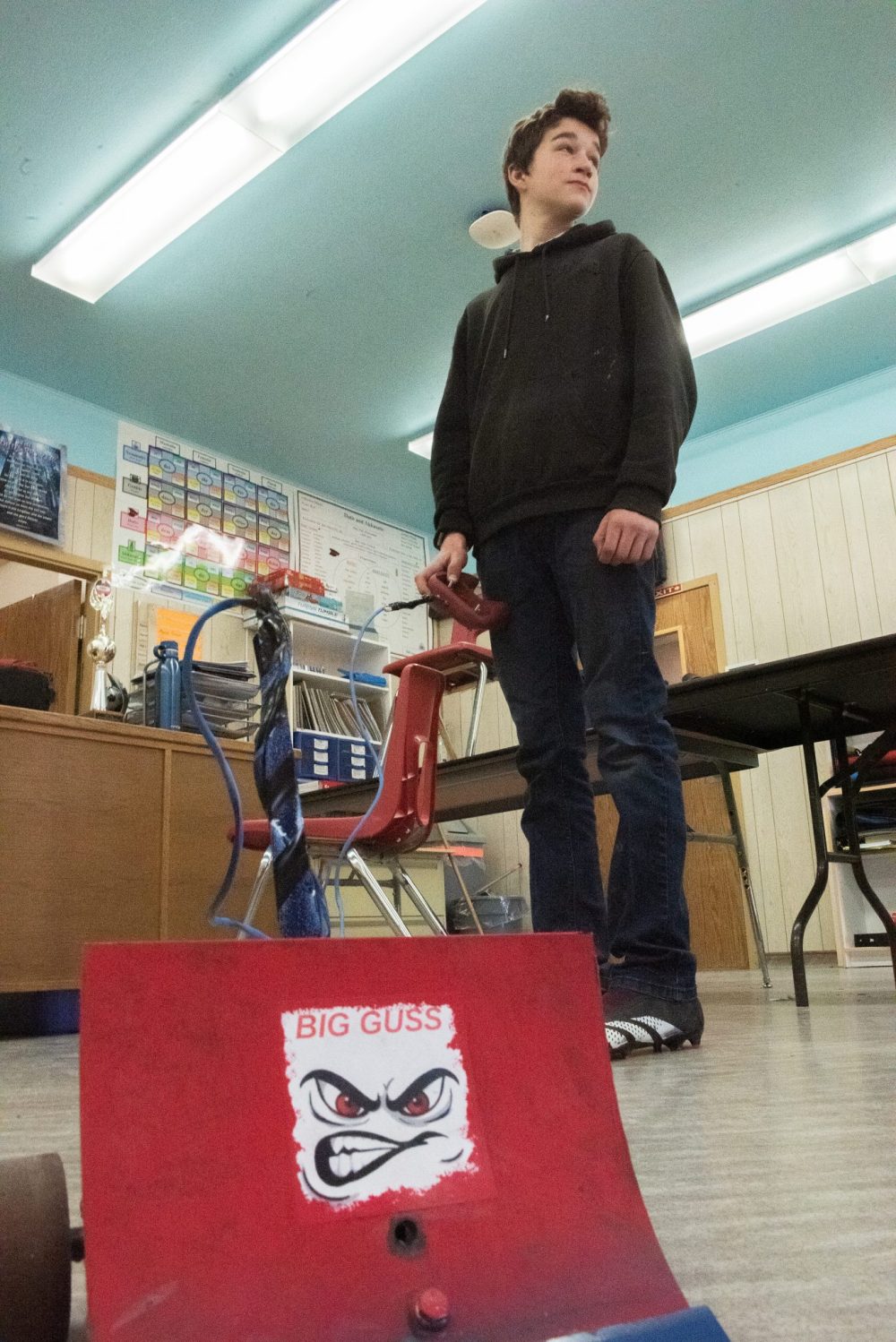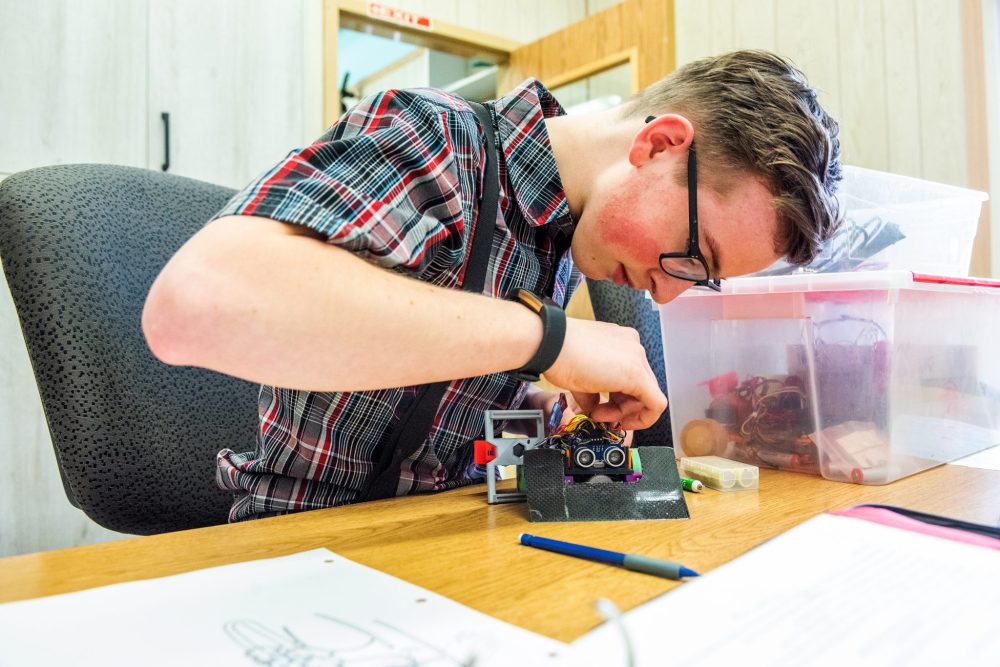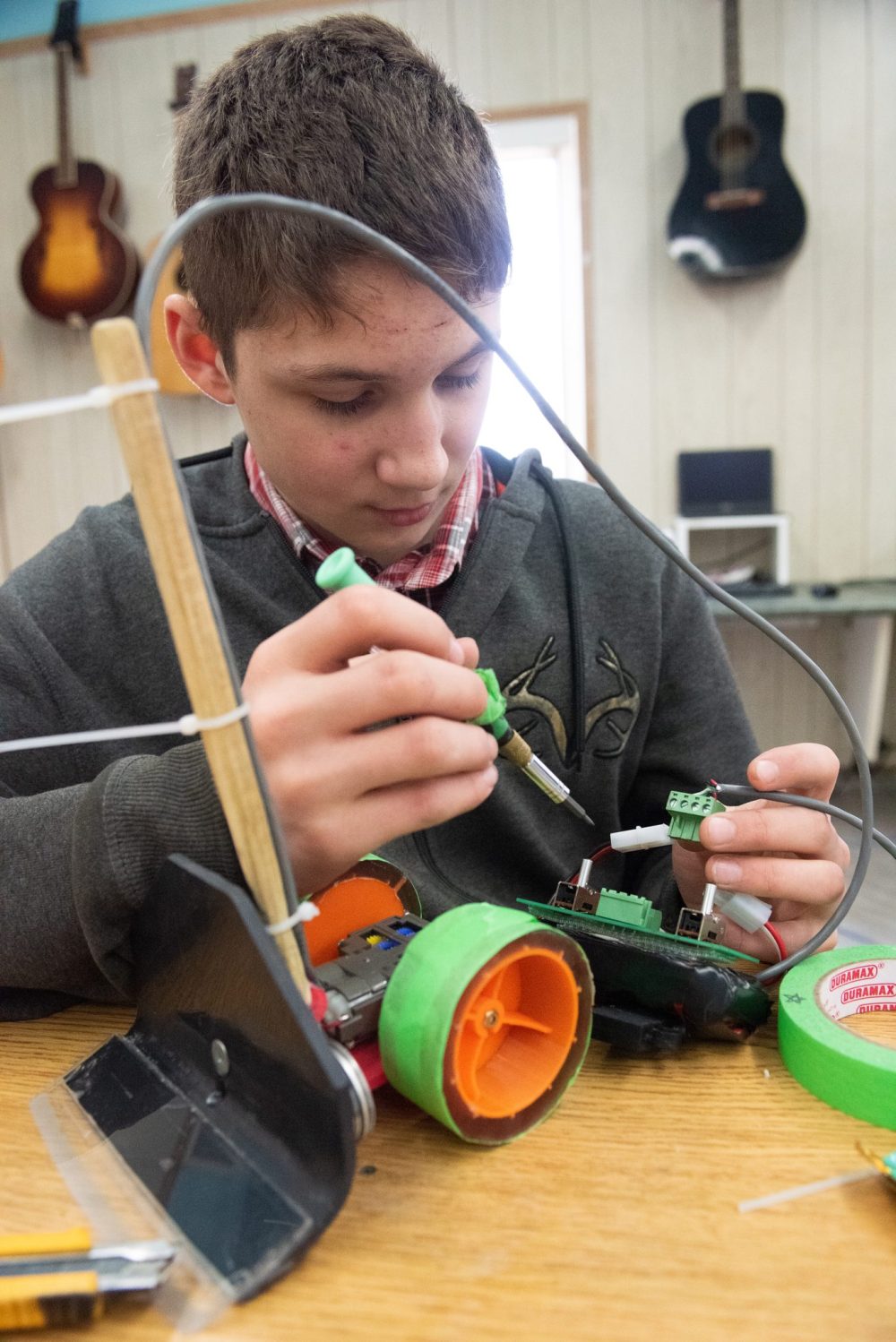Cancellation of robot games leads to schools organizing themselves
Advertisement
Hey there, time traveller!
This article was published 22/04/2024 (454 days ago), so information in it may no longer be current.
Every year, kids from across Manitoba compete in the Manitoba Robot Games smashing and pushing their robots in the arena to see who will be the victor. This year due to a death on the organizing committee, the games were cancelled. But the cancellation didn’t stop some schools from putting on their own games.
Crystal Springs School and 11 other Hutterite schools organized themselves to have their own robot games last Saturday in Carberry with Crystal Springs coming home with a number of trophies.
“The games saw just over 100 students competing with 135 robots in seven different categories,” said principal Karl Kleinsasser. “The Crystal Springs School team came home with four first place finishes, two second places, and three third places, sweeping the podium in two categories, Mini Sumo 2 and Mini Sumo 3.”

Crystal Springs has been making robots and competing for about 20 years. This year there are 22 students competing in the Hutterite games.
“It’s about fun and teaching and learning and the kids developing and so over the years I’ve been a big proponent in the robot games getting other colonies involved, getting other schools involved,” said Kleinsasser.
One of the teachers that Kleinsasser helped was J.P. Jamieson who teaches at Morris School. Jamieson has about 26 students in his robotics club. The initial startup cost for each robot was $50 which paid for a gear box, tires, controller, and motor. The children then solder the gearbox to the controller and build the plastic body to finish their robots. There are three categories that the students can design their robots around: speed, power, or somewhere in between.
When the Manitoba Robot Games were cancelled, Jamieson reached out to Niverville High School teacher Chris Burns, who had started his robot club this year, about having a match between their schools.
“I think the losing the Manitoba Robot Games as sort of an end game tournament affected some of the students for how much they did it, whereas some of the other students are still intrinsically motivated and they have been working the whole time.
“It was sort of nice that Niverville was kind enough to allow us to play this game because that serves us as a season ender. Some of the students were working hard every day anyway, but now there was a final match on the road sort of motivated a few more to get their designs finalized and finished,” said Jamieson, later noting a lot of the students used the school’s 3D printer and CAD software for their designs.
For Burns, the match got his 10 students excited as this was the first match they were participating in.

“For the students they’re pumped. It’s a chance for them to take a look at all the things they have been working for in the last 10 months and put it all together and really see how they did. Push themselves, test themselves, see how it went. They have all kinds of challenges and problems this year that they figured out a solution to and figured out a way through. They’re really excited for a chance to see what they can actually do when they put themselves in a long-term project like this,” he said.
Not only do the kids learn STEM, but finding solutions to problems, cooperation, sportsmanship, how to build things, and other life skills are what the robots are all about, according to Kleinsasser.
“It’s not just about winning, but everyone having fun and just growing. They develop so many life skills, it’s not just building life skills, like how to produce stuff, its personal life skills. I think the Manitoba Robot Games has done a very good job focusing their competitions in that direction. Making sure that it’s about learning and, yeah, it’s a competition, but they do set up their competitions to be very much a learning experience for the students. That’s the focus. For me, that’s the focus.”
Kleinsasser’s students started building robots in Grade 5 and they have the advantage of gleaning help from those that came before them through advice.
“Experience is key. First two robot games you might not win, but you learn from your mistakes and then you start winning,” said 18-year-old Lawrence Evans, who was a judge at the Hutterite games.
“A sharp scoop and good tires. And you just set together a motor and the gear box which you get,” said Adoniran Waldner, 15, on what is needed to make a winning robot.

The Hutterite colony has a 3D printer which the students use, as well as, a machine shop and laser cutter.
As to whether the Hutterite games will continue, Kleinsasser said it was just a one off.
“We haven’t really thought that far ahead. Our main goal was just to replace the robot games just for this year.”
